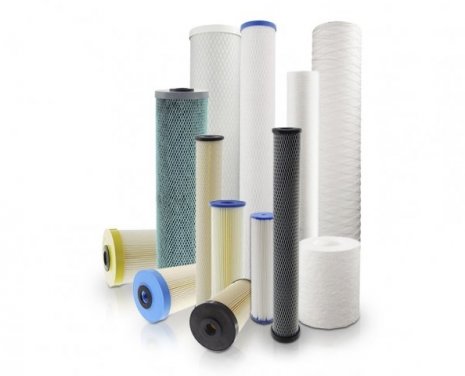Water filtration is an essential process in various industries and applications, ranging from residential use to industrial settings. One crucial aspect of water filtration is the micron size, which determines the size of particles that can be effectively removed from the water. Micron sizes refer to the diameter of particles that a filter can capture, with smaller microns being capable of filtering out finer particles. In this blog post, we'll delve into the different micron sizes used in water filters and explore their applications.
Understanding Micron Sizes
Micron sizes in water filtration typically range from larger sizes, such as 100 microns, down to smaller sizes, like 0.1 microns. The smaller the micron size, the finer the particles that can be removed from the water. Here's a brief overview of common micron sizes and their applications:
100 Microns: Filters with a 100-micron rating are considered coarse filters and are typically used to remove larger particles, such as sediment, sand, and rust. These filters are commonly employed in pre-filtration stages to protect finer filters downstream.
50 Microns: Filters with a 50-micron rating are capable of capturing smaller particles than 100-micron filters, including finer sediment and debris. They are often used in residential and commercial applications where water quality is a concern.
20 Microns: Filters with a 20-micron rating provide enhanced filtration, removing even smaller particles from the water. They are suitable for applications requiring higher water purity, such as food and beverage production or pharmaceutical manufacturing.
5 Microns: Filters with a 5-micron rating offer fine filtration, capable of capturing particles as small as a few microns in size. These filters are commonly used in various industries where water quality is critical, including window cleaning businesses for sediment filtration.
1 Micron: Filters with a 1-micron rating provide exceptional filtration, removing microscopic particles and contaminants from the water. They are often utilized in laboratories, medical facilities, and semiconductor manufacturing plants where ultra-pure water is essential.
Application Examples
Residential Water Filtration: In households, water filters with micron ratings between 1 and 20 are commonly used to improve drinking water quality, remove sediment, and reduce chlorine taste and odor.
Commercial Facilities: Restaurants, hotels, and cafes may use water filters with micron ratings ranging from 5 to 50 to ensure clean water for cooking, beverage preparation, and customer consumption.
Industrial Processes: Manufacturing plants, power plants, and chemical facilities often employ water filtration systems with micron ratings tailored to their specific needs, ranging from coarse filtration for process water to ultra-fine filtration for high-purity applications.
Window Cleaning Businesses: Window cleaning companies rely on water filtration systems with 5-micron filters to remove sediment and debris from the water used in their cleaning equipment. By filtering out impurities, these filters help ensure streak-free and spotless cleaning results.
Understanding the role of micron sizes in water filtration is crucial for selecting the appropriate filters for specific applications. Whether it's removing sediment from window cleaning equipment or ensuring ultra-pure water for industrial processes, choosing the right micron rating is essential for achieving optimal water quality. By considering the micron size and application requirements, businesses can implement effective water filtration solutions to meet their needs and ensure clean and safe water usage.

